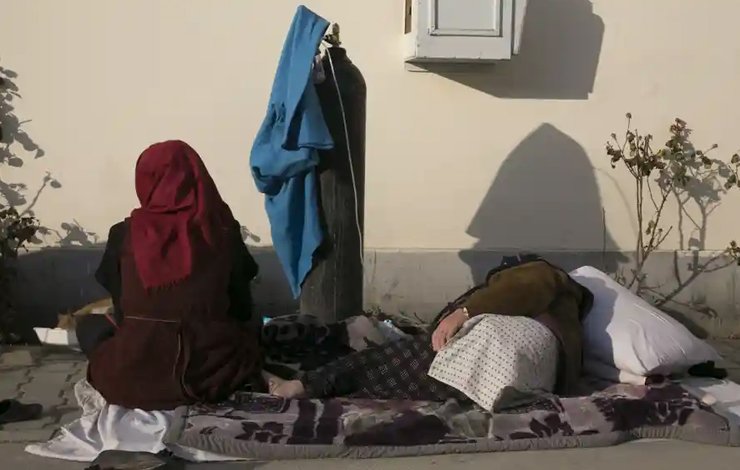International experts have warned that the western sanctions against the Taliban have put Afghanistan’s health system on the brink of collapse.
They said that Afghanistan, a country of 23 million people, is facing outbreaks of disease and escalating malnutrition crisis due to the western sanctions after the seizure of power by the Taliban in August.
The levels of famine and economic collapse are mounting, whereas, the medical staff have not been paid for months besides the acute shortage of health-related basic items to treat patients.
Dr Paul Spiegel, director of the Center for Humanitarian Health at Johns Hopkins University, was quoted by The Guardian saying that on a recent five-week trip to the country he had seen public hospitals – which cater for the most vulnerable – lacking fuel, drugs, hygiene products and even basic items such as colostomy bags.
He said the Covid-19 response had almost ground to a halt and called for a more nuanced response to western sanctions in order to avert a deeper public health disaster.
“It’s really bad and it is going to get a lot worse,” Spiegel.
“There are six simultaneous disease outbreaks: cholera, a massive measles outbreak, polio, malaria and dengue fever, and that is in addition to the coronavirus pandemic.”
He said that some parts of the primary healthcare system were being funded through a two-decades-old scheme but large parts remained largely unsupported, even as health officials, international organisations and NGOs have been required to restart programmes on hold after the Taliban regained control of the country in August.
“I’ve been everywhere during my career. What is shocking is that you don’t normally have an abrupt halt to everything. The UN organisations and NGOs supporting healthcare in Afghanistan are not just dealing with acute emergencies, they’re having to respond to getting the basics running.
“For example, there are supposed to be 39 hospitals dealing with Covid-19 cases of which 7.7% is fully functioning. And it’s not just the hospitals. It’s the whole thing that glues together public health systems: surveillance systems, testing and there’s very little oxygen to treat those who do have Covid.”
He described the main referral hospital for infectious diseases in Kabul as “on its knees”.
“None of the staff have received salaries for months, though most are still coming in. There is hardly any medicine and they are cutting trees in the courtyard to heat the rooms because there is no gas. They’ve also sent their ventilators to the Afghan Japan hospital to treat Covid cases but that is also struggling.”
Dave Michalski, head of the programme at Doctors Without Borders in Afghanistan, last week warned in an interview with NPR that there likely to be Afghans in need of healthcare who were not able to access even the reduced levels available.
The UN children’s organisation Unicef has warned that the growing crisis in the country’s health system is exacerbating Afghanistan’s mounting malnutrition issues.
Dr Paul Spiegel said the west needed to find a different approach to the imposition of sanctions on the Taliban.

